#lvdh full form
Explore tagged Tumblr posts
Text
Preserving 35 kL of Prime 46 Oil from Solid and Moisture Impurities
Minimac Rescues Bihar Power Station : Customized Solution for Solid Contamination and Moisture Wins.
Synopsis
In Begusarai, Bihar, a 720 MW coal-fired power station owned by a major PSU recently faced high Solid Contamination and Moisture Levels in two tanks each with 115 MW power potential. To avert disruption, Minimac provided a customized solution, deploying a specialized machine to lower NAS levels and address moisture and solid contamination saving the plant from a potential failure.
Initial Findings
The power plant's poor operational condition had resulted in the oil degrading to its maximum limit, physical inspection revealed highly contaminated oil with various unwanted contaminants such as sludge, metal parts, insects, dirt, etc.
Problems
Two primary lubrication oil tanks, each with a substantial 115 MW power potential, experienced significant contamination from solids and moisture. Utilizing the contaminated oil to initiate the turbine posed a critical risk of tripping the overall system, leading to potential catastrophic failures.
Client’s Requirement
To Purify 15 kL & 20 kL of Prime 46 Oil from the respective tanks.
To remove Moisture and Solid Contaminants.
To Achieve NAS ≤ Class 8.
To Achieve Moisture ≤ 500 PPM.
Customized Solution.
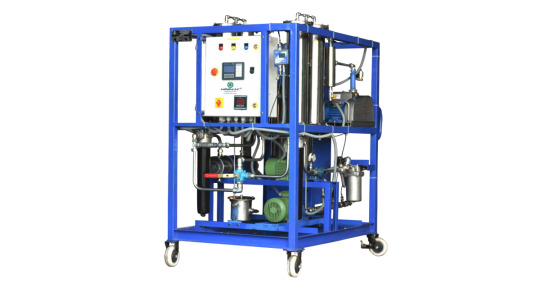
Solutions
Deploying Minimac’s customized machine at the site along with trained and skilled engineers.
Oil filtration system(150 LPM & 200 LPM) to bring the NAS level of oil to the desired range.
Low Vacuum Dehydrator (100 LPM) to maintain consistent moisture levels in the oil using the vacuum dehydration ensuring smooth turbine operation in its active state.
Our Service Engineer installed the equipment and provided training on its operation and effective handling to the client's team.
Job executed within a limited time-span on the running unit without hindering the client’s operations and oil tanks.
Value TypeOil Tank under UNIT 7 (15kL)Oil Tank under UNIT 8 (20kL)BeforeAfterBeforeAfterNASClass 12Class 8Class 12Class 8Moisture Level13000 PPM64 PPM700 PPM42 PPM
Cost Saving
This plant managed to save:
Cost of Oil Replacement: ₹75 Lakhs. Approx
Cost of Downtime: ₹1 Cr. Approx
CO2 e Saving
4,20,000 kg of CO2 e / 0.42 gigagrams of CO2 e
Benefits
Prevented the environment from harm by averting the emission of 4,20,000 kg of CO2e.
Saved 35 kL of Oil from being incinerated.
Extended Oil Life.
Reduced NAS & Moisture Levels.
Elimination of Oil Replacement Costs.
Task Successfully performed without any shut downs and in a limited amount of time.
No Accidents/ Spillage.
HSE Norms Fulfilled Diligently.
Abbreviations Used
kL : kilolitre
kg : kilogram
MW : Megawatt
NAS : National Aerospace Standard
LPM : Litres Per Minute
PPM : Parts Per Million
HSE : Health, Safety & Environment

Oil Visuals : Before & After
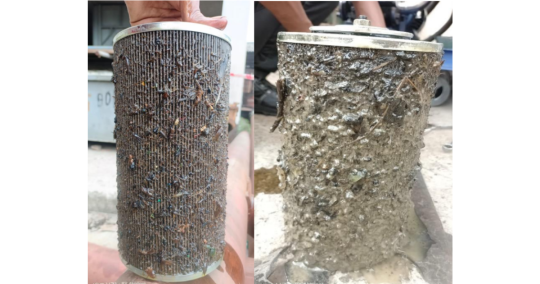
Filter Visuals : Before

Strainer Conditions Before Filtration Filter Visuals : After
Subscribe to our WhatsApp Community and be a part of our Journey - Click Here
#frf#oil flushing#minimac systems#power#minimac#oil & gas#hydraulic oil#lube oil filter#contamination#hydraulic oil filter#chemical cleaning flushing#chemical flushing#chemical cleaning#lube oil flushing systems#lube oil flushing#lubeoil#transformer oil filtration#oil filtration#oil filtration systems#oil filtration machine#oil dehyration#oil dehydration systems#lvdh full form#lvdh#mlc lvdh#frf condition systems#frf machine#condition monitioring#oil condition monitoring#oil cleaning machine
0 notes
Text
better options for skamnl s3 than lvdh:
olivia comes back from whatever void she disappeared into and achieves her full lesbian form
isa season again except now she’s dating liv a girl and it’s a happy healthy relationship
imaan magically rejoins the show and finds her muslim icon gf
kes x jayden friends to lovers
engel or janna season i guess
39 notes
·
View notes
Text
Oil reconditioning project for India’s largest coal-based power producer
Team Minimac successfully executed a critical project to recondition the control fluid (two tanks of capacity 16 kiloliter each) for India’s largest energy conglomerate and coal-based power producer with a capacity of 4760 MW.
Synopsis
The plant was built and is in service as a thermal power generating station, in Vindhyachal. There was a problem with higher Total Acid Numbers (TAN), observed typically when moisture content exceeds the permissible range. They were facing difficulties in stable unit operation because of the sluggish and erratic behavior of the turbine governing system. It was a significant threat to unit outage and generation loss. The situation was examined by Minimac Operations and Maintenance Service (MOMS). Resin skid - Minimac- FS-20-TRIX- 8-25 ltr-1S-FRF-DOL was deployed to address the issue.
Before Oil purification, the TAN value was≥ 0.62 mgKOH/gm, NAS ≥ 8, and Moisture ≥ 1471 PPM. After Oil purification, the recorded parameters were TAN value = 0.08 mgKOH/gm, NAS ≤ 4, and Moisture ≤ 260 PPM. The major challenge faced during the execution was if we charged resin, TAN would reduce, but moisture would increase. So, an analysis was done and implemented to control the moisture first, then charged the second resin cycle. Minimac gave a 100% customized and balanced solution within time.
Problems
The tank capacity was 16 kiloliters, which is huge. The biggest challenge was to execute the project while the system was in operation. Water contamination bubbles were forming, leading to the fluctuation in NAS - as for moisture control, it was necessary to turn off the system. Resin charge in Ion exchange was done intermittently to control moisture increase, and our motto was to hold moisture below 500 PPM so we could plan for the next cycle of resin charge.
Client’s Requirement
To purify the control fluid.
To reduce the TAN value from 0.62 to < 0.10 mgKOH/gm.
To bring down the moisture level < 500 PPM.
To achieve NAS < 5.
Smooth and timely execution without any downtime.
Tailor-made solution.
No oil loss because of processing or spillage.
Solutions
Resin skid - Minimac- FS-20-TRIX- 8-25 ltr-1S-FRF-DOL for NAS & moisture reduction was installed.
Before the oil conditioning process, the TAN ≥ 0.62 mgKOH/gm, which was reduced after oil purification to TAN ≤ 0.08 mgKOH/gm.
The Nitrogen generation unit (TMR 100) was deployed and installed at the client’s site.
For further improvement in TAN, the oil vapor extraction fan (OVEF) was throttled in the range of 70%, with the support of the user.
Minimac provided trained manpower and other consumables under the MOMS (Minimac Operations and Maintenance Service) offering. Minimac had given results far better than the KPIs.
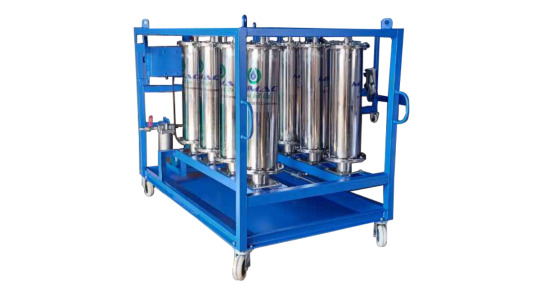
Cost Saving
This plant managed to save:
Cost of oil replacement: ₹ 3.2Cr. approx/ $ 32 Million approx
Cost of downtime: ₹ 3.15 Cr. approx/ $ 31.5 Million approx
By investing ₹ 21 lakh approx/ $ 25.65k approx only.
CO2 e Saving
1,92,000 kg of CO2 e / 0.192 gigagrams of CO2 e
Benefits
Extended in-service oil life.
The smooth functioning of the machines.
Elimination of new oil replacement cost.
Avoiding the risk of fire and explosion.
Reduction in the possibility of product degradation due to blanketing.
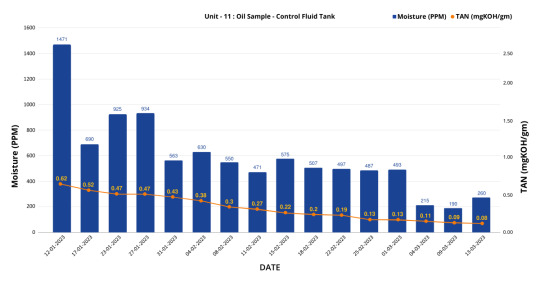
Subscribe to our WhatsApp Community and be a part of our Journey - Click Here
#frf#oil flushing#minimac systems#power#minimac#oil & gas#hydraulic oil#contamination#lube oil filter#hydraulic oil filter#lube oil flushing#lube oil#chemical flushing#oil and gas#metal#mining#oil filtration system#transformation oil purification#transformer oil#transformer oil cleaning#transformer oil filtration#transformers#oil purification system#oil purification machine#oil purification system#oil purification#oil dehydration systems#mlc lvdh#lvdh full form#lvdh
0 notes
Text
PE fluid reconditioning in turbine EHC system
A 1,320 MW (2 x 660 MW), one of the first and largest supercritical coal-fired power plants using Indo-Chinese turbine EHC system in northern India
Synopsis
The plant was struggling with the rapid increase in TAN values in the EH oil of the governing system of the turbine. Moisture content was also more than permissible limits. Degradation of the oil was due to contamination ingression into the system resulting in by-product formation.

Problems
Degradation of EH oil properties at both the units of the plant.
The installed regeneration system for each EHGC tank of unit #1 and #2 was failing to control neutralization number (TAN value) and showing a rapid increase in the same
The company was unaware of the consequences of increased TAN values like possibilities of failure of servo valve, hunting, power generation loss, unplanned shutdown, etc
Solutions
Installation of Minimac’s EH oil reconditioning system “MLC LVDH TRIX 20” comprehensively designed with 4 major technologies to:
Remove solid contamination from oil by Superfine filtration
Remove moisture from oil by vacuum Dehydration technology
Reduce Total Acid Number (TAN) by Ion exchange technique.
EHC system tank moisture removal and ingress prevention by Inert Gas blanketing technique.
Along with equipment installation, our service engineer trained the customer’s team on the functions of the EH oil re-conditioner, FRF maintenance, contamination control, and importance of the oil analysis program.
Cost Saving
This plant managed to save:
Cost of oil replacement: ₹78 Lakh approx.
Cost of downtime: ₹5.6 Cr approx
CO2 e Saving
14,400 kg of CO2 e / 0.0144 gigagrams of CO2 e.
Benefits
Extending oil life.
Eliminate oil Replacement cost.
Protect Turbine against hunting.
Increased Turbine reliability.
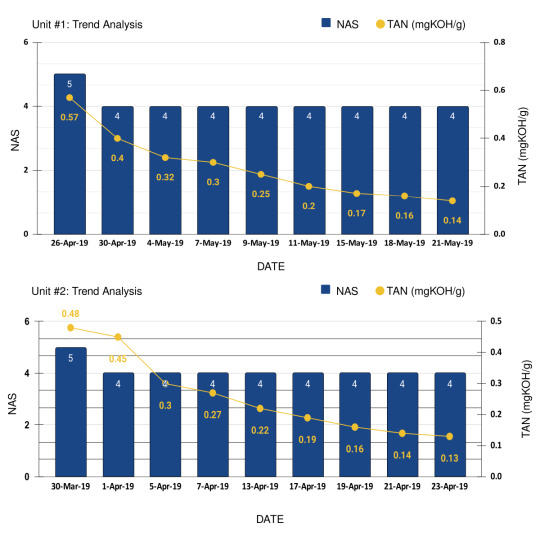
Subscribe to our Whats App Community and be a part of our Journey - Click Here
#frf#oil flushing#minimac systems#power#minimac#oil & gas#hydraulic oil#lube oil filter#contamination#hydraulic oil filter#lube oil flushing#coalescer separator#oil dehydration systems#lvdh full form#mlc lvdh#transformer oil filtration#turbine oilanalysis maintenance lubrication reliability contaminationcontrol oil powerplants oilfiltration rotatingequipment mechanical bre#oil filtration#oil filtration system#oil filteration#oil filtration machine#oil filtration systems#oil contamination#frf condition systems#diesel oil purification#hydraulic oil cleaning#chemical cleaning
0 notes
Text
Reconditioning of EH oil
A power plant in western India using chinese technology turbine EHC system saved 3.01 Cr approx. with MLC LVDH TRIX-20 EH oil filtration
Synopsis
A power plant (2 x 600 MW) in western region of India was struggling with the rapid increase in TAN values in the EH oil of the governing system of the turbine and moisture content was also more than permissible limits. Degradation of the oil was due to contamination ingression into the system and resulting into formation of by-products.
Minimac’s EH oil reconditioning system “MLC LVDH TRIX 20 “act as saviour for the plant which has escaped the unexpected shutdown of the turbine worth 2.8 Cr (approx. 48 hours downtime) and cost & effort for replacement of oil worth 21 lakhs.

Problems
Failure of servo valve, hunting and sluggish behavior of the turbine, unplanned shutdown, presence of varnish & silt in the clearance of the spool, high TAN value leading to electro kinetic erosion of line and accessories of EHC system, ingression of particle & moisture contamination…… Ultimately all resulting to GENERATION LOSS & REVENUE LOSS
Solutions
Installation of Minimac’s EH oil reconditioning system “MLC LVDH TRIX 20” comprehensively designed with 4 major technologies to:
Remove solid contamination from oil by Superfine filtration
Remove moisture from oil by vacuum Dehydration technology
Remove Total Acid Number (TAN) by Ion exchange technique.
EHC system tank moisture removal and ingress prevention by Inert Gas blanketing technique.
Along with equipment installation, our service engineer has trained the customer’s team on the function of the EH oil Re-Conditioner, FRF maintenance and contamination control, Importance of Oil Analysis Program.
Benefits
Extending oil life.
Reduced TAN value.
Eliminate oil Replacement cost.
Protect Turbine against hunting.
Increased Turbine availability & reliability.
Cost Saving
This plant managed to save:
Cost of oil replacement: ₹21 Lakh approx.
Cost of downtime: ₹2.8 Cr approx
CO2 e Saving

Above graph shows the trend analysis of NAS 1638, moisture and TAN value around one-month installation of the reconditioning of EH oil at customer site.
Consumable required to finish this reconditioning of EH oil having quantity of 1200 liters are: 01 quantity of 10 micron and 03-micron filter element. Total consumption of resin was 36 liters
Subscribe to our YouTube Channel and be a part of our Journey - Click Here
#frf#oil flushing#minimac systems#power#minimac#oil & gas#hydraulic oil#lube oil filter#contamination#hydraulic oil filter#oil dehyration#oil contamination#electrostatics lube cleaner#electrostatic discharge protection#chemcal cleaning#lube oil flushing#lube oil#hydraulic oil cleaning#hydraulic oil machine#hydraulic oil filter#tan reduction#tan#mlc lvdh#lvdh full form#lvdh#transformer oil#transformation oil purification#transformers#transformation
0 notes
Text
Standards of turbine oil
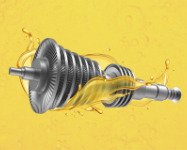
A) BSI (British Standards) – BSI BS 489:1999: Specification For Turbine Lubricants.
B) DIN (German Institute for Standardization DIN 51515-1, 51515-2: This document specifies minimum requirements for oils for high thermal stress (high-temperature service) in turbines.
C) ABB (ABB Group) ABB G12106: Ultra-clean turbine oil, Long-life, Rust & Oxidation-inhibited circulating oil.
D) ASTM International – ASTM D4304: Define the properties of the mineral and synthetic oil-based turbine lubricating oils that are functionally interchangeable with existing oils of this type, are compatible with most existing machinery components, and with appropriate field maintenance, will maintain their functionality.
E) GE (General Electric) GE: GEK-32568: Lubricating Oil Recommendations for Gas Turbines With Bearing Ambients above 500°F (260°C)
Also Read: https://www.linkedin.com/pulse/mandatory-properties-steam-gas-turbine-oil-anshuman-agrawal-mlt-1-/
We at Minimac study your maintenance needs and provide the best solution. We believe in Discern, Design & Deliver. Call +91 7030901266 for Mechanical Maintenance & Oil Check.
#frf#oil flushing#minimac systems#power#minimac#oil & gas#hydraulic oil#lube oil filter#contamination#hydraulic oil filter#oil analysis#oil filters#oil industry#oil and gas#oil#oil purification system#oil purification system#oil purification#oil contamination#mlc lvdh#lvdh full form#lvdh#mlc#transformer oil filtration#oil filtration machine#oil filtration systems#oil dehyration#electrostatics lube cleaner#transformer oil#transformers
0 notes
Text
Temporary power connection do's and don'ts

Do’s :
Ensure taking a work permit from the site in charge and conduct a Tool Box Talk.
All electrical jobs to be conducted by a certified electrician.
Ensure all the equipment is flameproof.
Equipment that operates in three-phase power should have double neutral earthing.
The use of an Earth-leakage circuit breaker is a must for all the equipment.
The current rating for all equipment should not be greater than 30Amps.
Ensure use of proper rating Direct On Line Motor Starter in individual machines.
Ensure use of proper armored cables for the main power connection.
If there are cable lying on the road crossings or pathways should be covered and concealed to protect them from physical damage.
Cables without any joints should be used at all times.
Cables should be laid above the ground to the maximum possible extend.
Electrical connections should be kept clean, dry, and tight at all times.
Ensure all power supplies are switched off from the feeder pillar immediately if the equipment is not in use on a daily basis.
Maintenance person should be informed after completing the job if there is no requirement for the temporary power.
Don’ts :
Don’t use power supply above 24 V inside confined spaces.
Do not lay the unarmored cable on the ground
Do not twist and carry connections between two cables.
Do not keep a temporary feeder pillar near water.
Do not sublet any temporary connection to another contractor.
Do not increase the load without informing the electrical maintenance department for a temporary power supply.
Do not allow an unauthorized electrical person on the job location.
Also Read: https://www.linkedin.com/pulse/myths-facts-what-do-you-believe-anshuman-agrawal-mlt-1-
We at Minimac study your maintenance needs and provide the best solution. We believe in Discern, Design & Deliver. Call +91 7030901266 for Mechanical Maintenance & Oil Check.
#frf#oil flushing#minimac systems#power#oil & gas#hydraulic oil#lube oil filter#minimac#contamination#hydraulic oil filter#lube oil#transformation oil purification#transformers#lvdh full form#mlc lvdh#oil condition monitoring#oil contamination#minimac flushing systems#maintanance#turbine oilanalysis maintenance lubrication reliability contaminationcontrol oil powerplants oilfiltration rotatingequipment mechanical bre#mechanical maintance#oil dehydration systems#frf condition systems#electrostatics lube cleaner#coalser separator
1 note
·
View note
Text
Importance of inventory management

Product labeling can be used to identify the following:
Purchase & Delivery Date: Label should mention the date of the purchase & delivery date of lubricants.
Product Name: It should also mention product name, brand, manufacturer
Quantity: It should also mention the quantity.
Storage Location: It should also mention the storage location of the lubricants. The products should be used in the same sequence as they are brought into inventory.
(1) FIFO: First in first out- lubricants should be taken into usage according to the date they are brought into the storage house.
We can enhance the life of plant and machinery through proper maintenance, storage, marking of lubricants.
Also read: https://www.linkedin.com/pulse/storage-management-oil-products-its-importance-agrawal-mlt-1-/
We at Minimac study your maintenance needs and provide the best solution. We believe in Discern, Design & Deliver. Call +91 7030901266 for Mechanical Maintenance & Oil Check.
#frf#oil flushing#minimac systems#power#oil & gas#hydraulic oil#lube oil filter#contamination#hydraulic oil filter#minimac#condition monitioring#contamination control#lubeoil#mlc lvdh#mlc#lvdh full form#oil testings#oil condition monitoring#fire resistance fluid
0 notes
Text
Myths vs Facts

A. Lubricating industrial equipment is easy.
This a complete myth whereas the actual fact is lubricating is highly detailed and complex. Some of the important decisions that one needs to take are:
1. Selection of proper oil & Grease for a machine.
2. Right place, right frequency and right volume of lubricant to be applied.
3. Proper flushing of lubricant tanks to ensure contamination-free lubricating lines.
4. Also applying grease is also an art; too much or too little of it can damage or blow seals.
B. Minimal consequences and benefits are associated with routinely lubricating industrial equipment.
This is also another myth whereas it has been seen that most events of downtime occur due to inadequate lubrication or due to the use of the wrong lubricant. Though lubricants cost about 1-3% of our total maintenance budget improper or wrong lubrication can lead to machine downtime costing millions of dollars.
C. Lubrication is an unnecessary cost to the organization.
This is completely untrue as correct lubrication practices can actually bring down the cost of maintenance and can give ample opportunity to employ those funds for further development of the company. Also read - http://bit.ly/2Pq76hT
We at Minimac study your maintenance needs and provide the best customized solution.We believe in Discern, Design & Deliver.
Call +91 7030901266 for Mechanical Maintenance & Oil Check.
#minimac systems#oil flushing#power#frf#oil & gas#minimac#hydraulic oil#lube oil filter#contamination#hydraulic oil filter#condition monitioring#transformation oil purification#chemical cleaning#lube oil#mechanical maintance#frf machine#oil purification machine#mlc lvdh#lvdh full form#oil testing#oil condition monitoring
0 notes
Text
Understanding the Pareto principle in terms of maintenance
In our previous segments, we have discussed several aspects of Lubricant contamination and ways to prevent or treat that contamination. But, as we all know that for every company the maintenance budget is limited so focusing on all the factors is not possible.
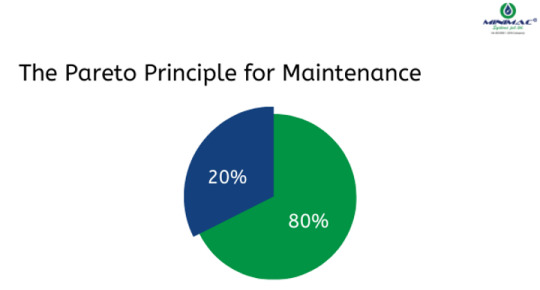
The Pareto Principle (also known as the 80/20 rule ) states that, for many events, roughly 80% of the effects come from 20% of the causes. In terms of maintenance, it can be reflected upon as 20% of Machines cause 80% of the Downtime.
Few key causes that constitute this 20% are:
1. Particle Contamination
2. Moisture Contamination
3. Wrong/Degraded Lubricant
4. Misalignment
5. Imbalance

We at Minimac study your maintenance needs and provide the highest quality & service quality solutions. Call +91 7030901266 for Mechanical Maintenance & Oil Check.
#minimac systems#oil flushing#frf#power#oil & gas#hydraulic oil#minimac#lube oil filter#contamination#hydraulic oil filter#lube oil#lvdh full form#mlc lvdh#frf machine#transformation oil purification#turbine oilanalysis maintenance lubrication reliability contaminationcontrol oil powerplants oilfiltration rotatingequipment mechanical bre#mechanical maintance#contract & services#clean oil#contamination free#oil testings
0 notes
Text
Understanding the root cause of the symptoms that are observed on your machinery?
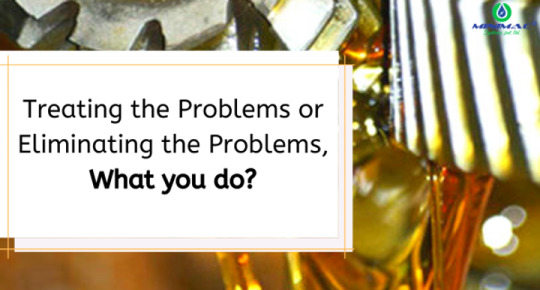
It is observed across the spectrum that whenever we see issues/symptoms like:
1. Oxidized oil
2. Destructive pitting
3. Excessive vibration
4. Abrasive wear
5. Cavitation
6. Machinery abnormal noise
7. Wear debris generation
8. High running temperature
We usually believe in either Repairing, Replacing, Rebuilding and Removing the affected component. However, it only subsides the symptoms temporarily. This approach is called the 4-R approach and it weeds out the issue from the surface and not at the root level and hence the problem reoccurs. Call +91 7030901266 for Mechanical Maintenance & Oil Check.
However, we should aim at studying these symptoms and work on the root causes. Some of the very frequent root causes that cause the above-mentioned symptoms are:
1. Misalignment
2. Wrong oil usage
3. Moisture
4. Machinery part imbalance
5. Particle contamination
6. Air contamination
Hence, we should aim at 5I approach i.e. It’s clean, It’s Cool, It’s dry, It’s aligned and balanced, It’s well oiled. This approach keeps the machine healthy and eliminates the problem.
In case you are unable to understand the root cause of the symptoms that are observed on your machinery contact Minimac Systems Pvt. Ltd.
#oil flushing#minimac systems#minimac#hydraulic oil#oil & gas#lube oil filter#contamination#power#hydraulic oil filter#frf#oil filteration#turbine oilanalysis maintenance lubrication reliability contaminationcontrol oil powerplants oilfiltration rotatingequipment mechanical bre#wind turbines#gas turbine services market#steam turbine market share#gas turbine market trends#mlc lvdh#lvdh full form#transformer oil filtration#oil dehydration systems#lube oil flushing#hydraulic
0 notes
Text
Are you experiencing sub-optimal results even after changing filters?
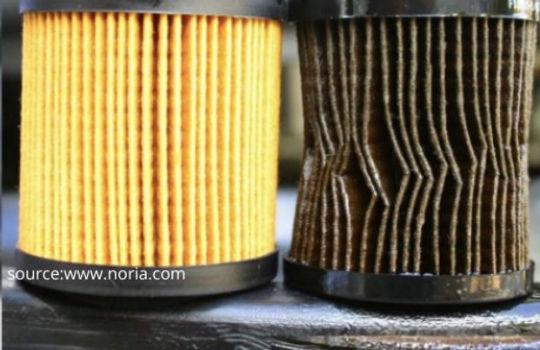
I hope you have read these 2 articles:
1.http://bit.ly/35J0Vuy
2.http://bit.ly/2QInSKi
Whenever you are experiencing sub-optimal results even after changing filters, below are some possibilities which should be checked for:
1. Collapsed center tube
2. Inconsistent media quality
3. Damaged or burst filter media – fatigue
4. Bypass at filter media seam
5. Bypass due to adhesive failure
6. Damaged gasket or O-ring seal
7. Bypass valve jammed in open/closed position
8. Installation error, installing a filter in the opposite flow direction
9. Bypass valve leakage
10. Misaligned filter and seal
If none of the above factors contribute to the sub-optimal functioning of your filters we suggest you contact the Minimac Consulting team for required filter calculations and further investigations.
Get your filter check today, Call +91 7030901266
We at Minimac Systems Pvt Ltd. provide services of Total Lubrication Management and Lubrication Consulting that helps you optimize your Lubrication needs. Minimac stands for MINImum MAChinery Maintenance.
#minimac systems#oil flushing#oil & gas#power#hydraulic oil#lube oil filter#contamination#minimac#frf#hydraulic oil filter#filter skid#minimac contract & services#transformer oil cleaning#oil filteration#mlc lvdh#lvdh full form#oil dehydration systems#electrostatics lube cleaner#coalescer separator
0 notes
Text
Understanding of the BETA factor
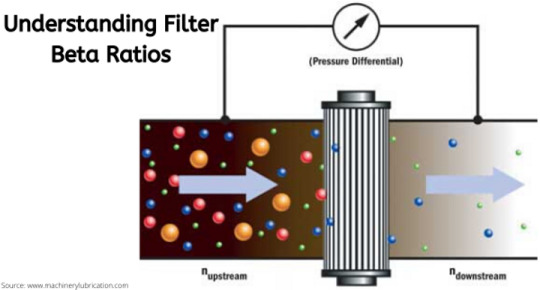
What is the Beta Ratio?
The beta ratio refers to the efficiency in which a given filter element removes the particle of a given size. The Beta Ratio is calculated using the ISO multi-pass test standard 16889:1999.
How is it measured?
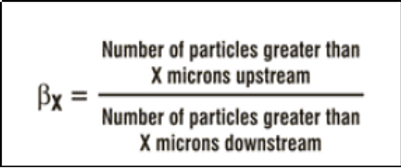
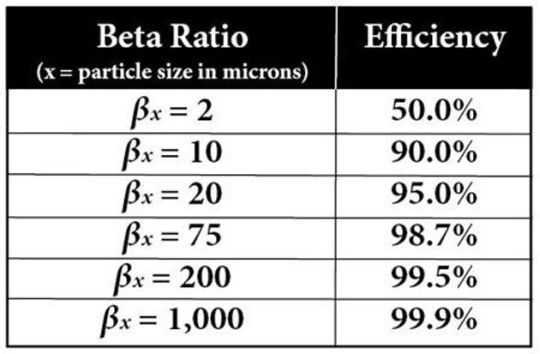
Get your filter check today,
So, to purchase a filter with a beta ratio of 2-10 is considered poor, it is advised to use filters with at least a Beta factor of 75 and 98.7% effectiveness. High quality, efficient filter assemblies can achieve 200 to 2000 Beta Ratio for given particle size and should be ideal to achieve a low level of contamination.
Also read: https://www.linkedin.com/pulse/you-buying-right-oil-filter-anshuman-agrawal-mlt-1-/
We at Minimac Systems Pvt Ltd. provide services of Total Lubrication Management and Lubrication Consulting that helps you optimize your Lubrication needs. Minimac stands for MINImum MAChinery Maintenance.
#oil flushing#minimac systems#oil & gas#power#lube oil filter#hydraulic oil#contamination#hydraulic oil filter#frf#lvdh full form#mlc lvdh#transformer oil cleaning#transformer oil market#minimac#oil dehydration systems#oil filters#filter skid#coalescer separator#diesel oil purification#electrostatics lube cleaner#condition monitioring
0 notes
Text
Are you buying the right oil filter?
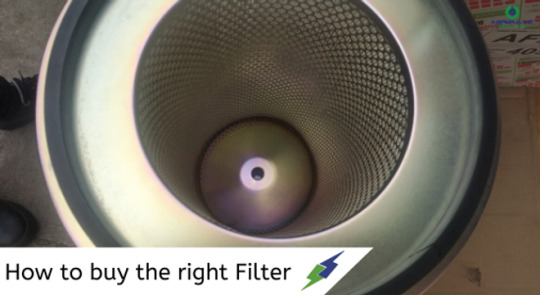
Let’s try to understand the real reason for the price difference. There are two types of filter ratings:
1. Absolute: Filter Rating meaning 99.9% of the particles larger than a specified micron rating will be trapped on or within the filter.
2. Nominal: Filter Rating indicating the approximate size particle, the majority of which will not pass through the filter. It is generally interpreted as meaning that 85% of the particles of the size equal to the nominal filter rating will be retained by the filter.
So, a vendor quoting for an Absolute 10-micron filter will have higher prices than the one quoting for a 10-micron nominal filter. So, the key is to always look for the datasheets of these filters and compare them basis the Beta Factor.
Also read: https://www.linkedin.com/pulse/can-all-contaminants-seen-naked-eyes-anshuman-agrawal/
We at Minimac Systems Pvt Ltd. provide services of Total Lubrication Management and Lubrication Consulting that help you optimize your Lubrication needs. Minimac stands for MINImum MAChinery Maintenance.
#minimac systems#oil flushing#oil & gas#hydraulic oil#lube oil filter#hydraulic oil filter#contamination#frf#power#minimac#condition monitioring#oil purification system#low vacuum dehydrations'#electrostatics lube cleaner#transformer oil filtration#coalescer separator#transformer oil cleaning#transformers#lvdh full form#mlc lvdh#lube oil flushing systems#hydraulic oil flushing systems#chemical cleaning systems#oil filters#filters#filter#contract & services
0 notes
Text
Do you know?

In this article, we will understand different types of maintenance techniques their pros and cons along with a brief guideline on how they impact a company’s cost structure with some interesting facts. Contact Minimac to schedule maintenance: +91 7030901266
There are four types of maintenance strategies:
1. Reactive Maintenance: Maintenance is scheduled in response to operational failure.
This type of maintenance is very useful for lowering initial cost, reducing manpower cost as you need fewer staff members and doesn’t require any planning. On the contrary, this strategy compels you to keep more inventory to brace for unexpected failure. This not only leads to a higher cost but also makes the project budgets unpredictable.
2. Preventive Maintenance: Maintenance is scheduled according to historic trends, experience or reliability data considerable guesswork is required.
Preventive maintenance helps plan operations better and provides a better grip on the project budget as you don’t have to keep a lot of inventory on the shelf. However, sometimes we end up sending parts that do not require maintenance which leads to unnecessary expenditure and work.
3. Predictive Maintenance: Progression of failure is monitored. Machine repair is scheduled prior to a catastrophic breakdown.
Reduction in maintenance costs, reduction in repair and Overhaul time and reduction in spare part inventory are some of the advantages of this technique, however high implementation cost, expense on manpower training and increased manpower are some of the downsides.
4. Proactive Maintenance: Ahead of the first initiation of failure, not in response to failure. Focused on the root cause.
This is one of the superior types as the elimination of the cause of failure saves a lot of costs and contributes to the project’s profitability. However, this can be only applied if the manpower has greater diligence and are consistent with observing and recording their feedback. Also, read https://www.linkedin.com/pulse/functions-hydraulic-oil-reasons-its-contamination-anshuman-agrawal/
We at Minimac Systems Pvt Ltd. not only design a maintenance schedule for the lubrication oil but also provide a range of OIL PURIFICATION SYSTEMS & FLUSHING SYSTEMS. Minimac stands for MINImum MAChinery Maintenance.
#minimac systems#oil flushing#hydraulic oil#oil & gas#minimac#power#lube oil filter#contamination#hydraulic oil filter#frf#flushing#oil purification machine#filter#condition monitioring#transformer oil cleaning#oil & gas industry#lvdh full form#lvdh#mlc lvdh#oil dehydration#coalser separator#electrostatics lube cleaner
0 notes
Text
Types of Water Contamination in Oil
In our last #knowyouroil segment, we had discussed about Particle Contamination and its effect on the life of rotating parts. Companies spend a lot of money on installing filtration units to counter particle contamination but never take preventive measures towards water contamination. Water is a worse and silent killer for the life of machinery as it slowly degrades the oil properties and one only gets to know about it when the machine fails pre-maturely.
In this article, we will try to understand the basics of Water Contamination. We will also try to answer the following questions.
1. What water does to oil properties?
2. Can we see water contamination as soon as it starts?

To check your machine's, follow: https://www.linkedin.com/company/minimacsystemsprivatetlimited
There are three phases in which water can exist in oil i.e. dissolved water, emulsified water, and free water.
Dissolved Water: It is characterized by individual water molecules dispersed throughout the oil. Water can remain in a dissolved state and hence difficult to understand the contamination at this stage.
Emulsified Water: When the oil gets saturated with water it starts to exist as a suspension in oil like microscopic droplets giving oil a milky appearance and is called emulsion.
Free Water: When the level of oil in water increases further it leads to separation of oil and water called Free water.

For a lubricant, the most important property is its viscosity. As the water starts to mix with lubricant it starts to alter the viscosity and hence impacts the film strength which is essential in maintaining equipment reliability by keeping moving parts away from each other. Water contamination also impacts the chemical properties of the base oil by acting as catalyst oxidation and aeration. This also leads to the appearance of sludge and varnish which leads to premature failure.
Water contamination also leads to Hydraulic Pump Cavitation in machines:

If you see the signs of water contamination in your oil, what should you do?
1. Not to change oil as changing oil is not the only option. This is because once the oil is drained the impurities still remain in the system until they are flushed. If new oil is introduced without cleaning the system it leads to contamination of the new oil leading to no change in the premature breakdown situation.
2. Flushing of the system
3. Check the internals of the system to check for any damage
4. Filter the new oil to ensure no moisture is available in the oil
5. Skip all four steps and call Minimac (+91 7030901266)
We at Minimac Systems Pvt Ltd. not only design a maintenance schedule for the lubrication oil but also provide OIL TESTING and FILTRATION services as per the ISO standard of Super Clean Oil. Minimac stands for MINImum MAChinery Maintenance.
#minimac systems#oil flushing#oil & gas#hydraulic oil#lube oil filter#contamination#hydraulic oil filter#minimac#power#frf#oil testings#flushing#hydraulic oil cleaning#lube oil#chemical cleanings#contamination control#lvdh full form#lvdh#oil dehydration#filter skid#flushing systems#flushing machine
0 notes